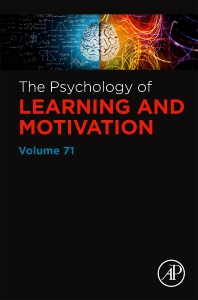Books in Psychology
Books in Psychology
Elsevier's Psychology collection is vital for students and psychologists, providing a thorough understanding of the mind and behavior. Covering human thought, development, personality, emotion, and motivation, it offers insights into both theoretical and practical aspects. Through topics like cognitive, developmental, and clinical psychology, it equips researchers and students to address real-world challenges and advance their understanding of the field.

The Psychology of Learning and Motivation
- 1st Edition
- Volume 71
- English

State of the Art of Research on Down Syndrome
- 1st Edition
- Volume 56
- English

Cyber Influence and Cognitive Threats
- 1st Edition
- Vladlena Benson + 1 more
- English

Advances in Experimental Social Psychology
- 1st Edition
- Volume 60
- James M. Olsen
- English

Learned Mindfulness
- 1st Edition
- Frank John Ninivaggi
- English

Military Veteran Reintegration
- 1st Edition
- Carl Castro + 1 more
- English

Mathematical Modelling in Motor Neuroscience: State of the Art and Translation to the Clinic, Gaze Orienting Mechanisms and Disease
- 1st Edition
- Volume 249
- English

The Dark Side of Social Media
- 1st Edition
- Pavica Sheldon + 2 more
- English

Child Development at the Intersection of Race and SES
- 1st Edition
- Volume 57
- English

Handbook on Animal-Assisted Therapy
- 5th Edition
- Aubrey H Fine
- English